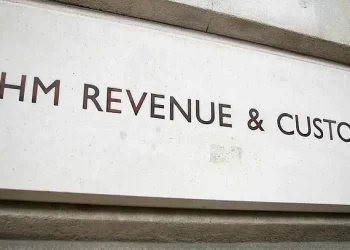The UK government has announced a significant increase in the National Minimum Wage and National Living Wage, effective April 1, 2025.
This change aims to support millions of families by providing a more sustainable income, with the National Living Wage for those aged 21 and over rising to £12.21 per hour, representing a 6.7% increase.
Understanding the Wage Increase
The recent announcement by the UK government regarding wage increases is set to impact millions of workers across the country.
The National Living Wage for individuals aged 21 and over will rise to £12.21 per hour, marking a substantial boost in earnings for eligible full-time workers. This increase is expected to provide an annual pay boost of approximately £1,400 for many employees.
Implications for Younger Workers
In addition to changes for those aged 21 and over, younger workers will also benefit from this policy shift. Workers aged 18-20 will see their hourly rate rise to £10.00, while those under 18 and apprentices will earn £7.55 per hour.
These adjustments aim to address income disparities among different age groups.
Economic Considerations
The wage increase could have varied effects on businesses and employment rates across the UK. While higher wages are likely to boost consumer spending and improve living standards for many families, some businesses may face challenges due to increased labor costs.
This could lead some companies to consider reducing hiring or increasing automation as potential responses.
Potential Benefits
- Improved financial well-being for millions of workers
- Increased consumer spending power
- Enhanced living standards for families across the UK
- Support in addressing income inequality
- A step towards mitigating the cost of living crisis
From April 2025, the rates will be as follows:
| Category | NMW rate | Increase (£) | Percentage increase |
|---|---|---|---|
| National Living Wage (21 and over) | £12.21 | £0.77 | 6.7 |
| 18-20 Year Old Rate | £10.00 | £1.40 | 16.3 |
| 16-17 Year Old Rate | £7.55 | £1.15 | 18.0 |
| Apprentice Rate | £7.55 | £1.15 | 18.0 |
| Accommodation Offset | £10.66 | £.067 | 6.7 |
A Historical Perspective
The UK’s approach to minimum wage policies has evolved significantly since its introduction in 1999. Recent increases have been more pronounced due to ongoing efforts to combat low pay amid a cost of living crisis.
The government’s commitment reflects broader trends seen in developed economies aiming to balance economic growth with social welfare considerations.
Additional Reading
To Sum Up
This wage increase represents a significant step towards improving financial stability for many UK workers while posing challenges that require careful management by businesses and policymakers alike.
As these changes take effect, monitoring their impact on employment rates and economic growth will be crucial.
Discover more of Todays Top Breaking News Stories!
Sources: UK Government, Living Wage Foundation, Cabinet Office, and BBC News.
Ivan Alexander Golden, Founder of THX News™, an independent news organization dedicated to providing insightful analysis on current events, prepared this article.









